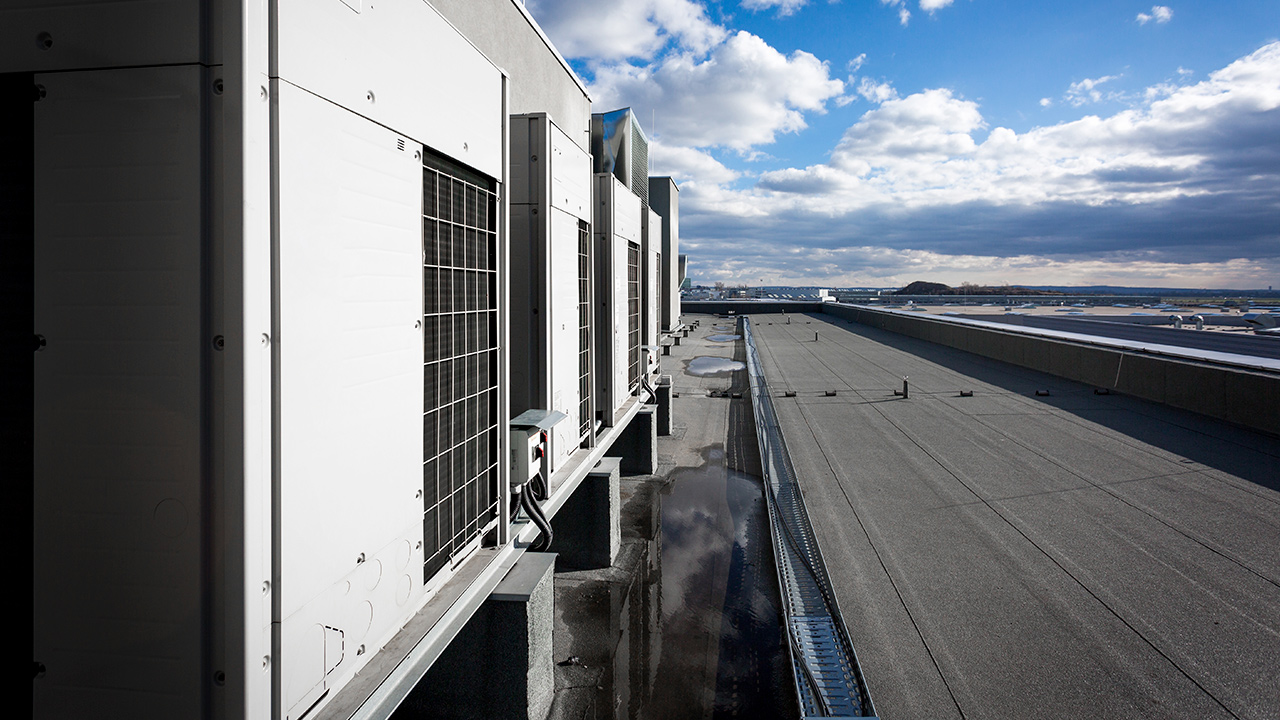You may have noticed that other commercial buildings have HVAC systems, solar panels, and other equipment stored on their rooftops. You may also wonder if you should do the same for your building but aren’t certain about the reasons why commercial buildings keep equipment on their rooftops. Good news—the benefits of storing heavy equipment on a rooftop far outweigh any negatives. In fact, you can compensate for potential negatives by planning your rooftop layout and investing in a complete rooftop support system.
Let’s explore the benefits of storing equipment on your rooftop, as well as the disadvantages of doing so.
Why Store Equipment on the Rooftop?
Lower Maintenance Needs
When you move your HVAC system to your roof, you help protect against weather elements on the ground. You don’t have to worry about leaves blocking airflow and don’t have to worry as much about other types of debris damaging your HVAC unit. You also prevent accidental damage from vehicles and vandalism from those seeking precious metals.
Reduces Chances Of Breaking Down
When you have an HVAC system on your roof, your system doesn’t have to work as hard. When you do need maintenance, it’s easier for an HVAC technician to perform maintenance and repairs. You also don’t have to worry about a maintenance crew being bothered by foot traffic or other obstructions.
Reduces Theft or Vandalism Risk
Whether you’re storing your HVAC unit, solar panels, or generators on your roof, you have the advantage that you have a reduced risk of theft or vandalism. Vandals are more likely to look for easy targets, and trying to find a way to your building’s roof isn’t easy or convenient.
Saves Energy
When you place solar panels on a roof instead of on the ground or a wall, your solar panels have better access to sunlight with fewer chances of shade obstruction. Rooftop HVAC units have a higher energy efficiency rating than ground units, which lowers your utility bills. Not only that, but the thermostat that comes with them is easier to adjust.
Saves Space
No matter what you’re storing on your roof, whether it’s cables, pipes, generators, or HVAC units, it frees up the square footage inside. You don’t have to worry about bulky equipment taking up space, whether it would create a crowded feeling or take up space for extra storage. Once you have extra space, you can use the space for whatever you need.
Potential Drawbacks to Rooftop Equipment Storage
While there are many advantages to storing equipment such as cables, pipes, generators, and HVAC units on your rooftop, there are some drawbacks to consider.
Risk of Trips and Falls
If cables or piping are lying directly on the roof, they may be difficult to spot by anyone accessing the area. This could potentially lead to a fall or injury. To ensure safety for workers, you should elevate all equipment using cable tray supports, pipe supports, and more.
Fire Hazard
If you store electrical cables on your roof, weathering and heat wear down the casing and eventually expose the wires. It only takes water or a lightning strike in the right place to create a spark and start a fire. You can help mitigate these risks by using cable tray supports.
Greater Weight Can Cause Damage
Commercial roofs are built to withstand a certain amount of tension, but adding too much weight can lead to damage, causing everything from leaks to a roof collapse. Using equipment supports will help evenly distribute the weight of heavy equipment.
Choosing the right rooftop support system will go a long way in protection for both your equipment and your roof. With the zero penetration system, invented by PHP, you can rest easy knowing that PHP offers top-quality products with added engineering and design features that reliably preserve and prolong the life of commercial and industrial roofs.




